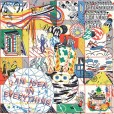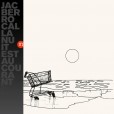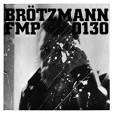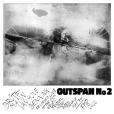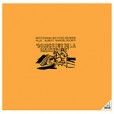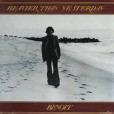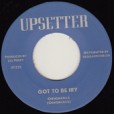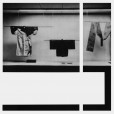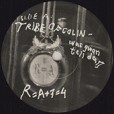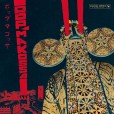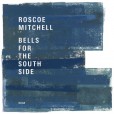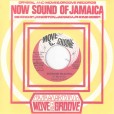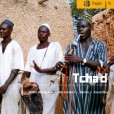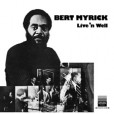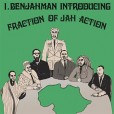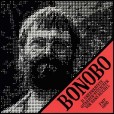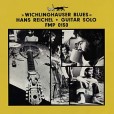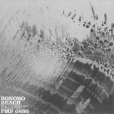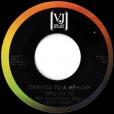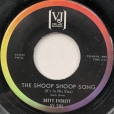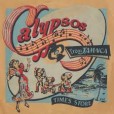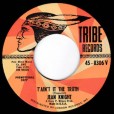Your basket is empty

Improvisations between Greenberger reading texts from his massive archive of old people’s testimony, Jones playing banjo and guitar, Corsano on drums.
‘Despite the dark and sad feeling of some of the texts (dealing with aging, memory loss etc), there is also humor, joy and grit. The album is a rollercoaster of emotions, a glittering patchwork of sonic atmospheres and an oral encyclopedia on dozens of subjects, like coffee, cigarettes, planets, art ... life ... and death.’
Featuring the jazz-dance classic Life Is Like A Samba… a Rinder & Lewis production from 1979.
Something really special.
Juddering bangers and hypnotic body-rockers, dazed spells and rootical wig-outs spun from early Detroit techno, West African field recordings, soundboy dub and beatbox hip hop; rough as fuck and clatteringly percussive, but shot through with a gritty numinousness. Stokey worries.
Gorgeously sleeved in midnight-black art-paper, intricately printed in silver with the visionary photography of Katrin Koenning, folded by hand and packed into Japanese cellophane envelopes.
Very warmly recommended, unsurprisingly.
Up from down under, following crucial releases on his own Body Language imprint, LJ shifts gears and steers his intricate sound-world — torn between house and ambient, with Larry Heard’s Alien LP coursing through — into deeper, more techno-infused waters.
Watch out for The Centre Of Time, evoking over its twenty minutes both the arctic vapour of Vletrmx21-vintage Autechre and the expansiveness of Vangelis in full flight.
Next-level stuff from Berceuse Heroique.
Strikingly original UK reggae from 1983, self-produced by West Londoner Alex Robertson aka I Benjahman, for his own Lion Kingdom label. With contributions from legends like Rico Rodriguez and Horsemouth Wallace, Studio One and King Tubby engineers Sid Bucknor and Tony Asher, Zabandis crew and Dennis Bovell. Still, the music retains a kind of vibesing outsider idiosyncrasy descended from Keith Hudson.
Kicks off with the Shaka selection Give Love A Try.
This LP offering adds dubs; the CD adds 12” versions, dubplate mixes, dubs and other unreleased material.
An outstanding reissue. Vinyl back in; last copies.
His second LP, originally released by FMP in 1976. ‘Microtonal string investigations still beguiling and fresh four decades later.’
‘Originally released on FMP in 1973, the debut album by this legendary German guitar improviser and instrument inventor is a resonant and hilarious document of the nascent genius recording his peculiar and wondrous music alone in a studio. Acoustic and unfiltered electric guitars turned back into the supremely malleable instruments they were before they’d been firmly encoded as tools for rock or pop or jazz. Reichel uses a homemade 11-string guitar (with three pickups) for all the tunes except the first one. Reichel is like an improvising Harry Partch, investigating the genesis of lute music.’
‘Subtitled ‘some more guitar solos’; his fourth and final record of solo guitar works. Next Reichel would turn much of his attention to the bowed wooden-tongued instrument he created called the daxophone. Reichel recorded the six tracks at his home in Wuppertal in April, 1981, and in the process made what might be his masterpiece. These are not just some more guitar solos. Concentrating largely on acoustic guitar with no frets as well as his electric pick-behind-the-bridge guitar, he transforms tones into crystalline formations — patience with resonances, attention to silence, formation of symmetries around a common sonic point, jetting notes that arc and spread and then hover. One might look for other references to describe what Reichel is up to — the magic of Terje Rypdal, the aura of early William Ackerman, the eccentric multiple pickups of Fred Frith — but really this is unique in guitar repertoire. Reichel built his instruments as tools for improvised exploration, and then he dove deep into them, never so far as on tracks like Could Be Nice or the quivering Southern Monologue, or the two brilliant versions of the title track, Bonobo Beach. On Two Small Pieces Announced by a Cigar-Box, the titular box is bowed in a vocal manner that portends Reichel’s development of the daxophone.
‘A beautiful, essential document from one of the great outsider guitarists of all time.’
Irresistible 1950s mento — singalong tunes, ebulliently performed, over-spilling with scandal, smut and impudence, sex, dancing and booze, word-play, jokes and up-to-the minute social commentary, and general love for life.
